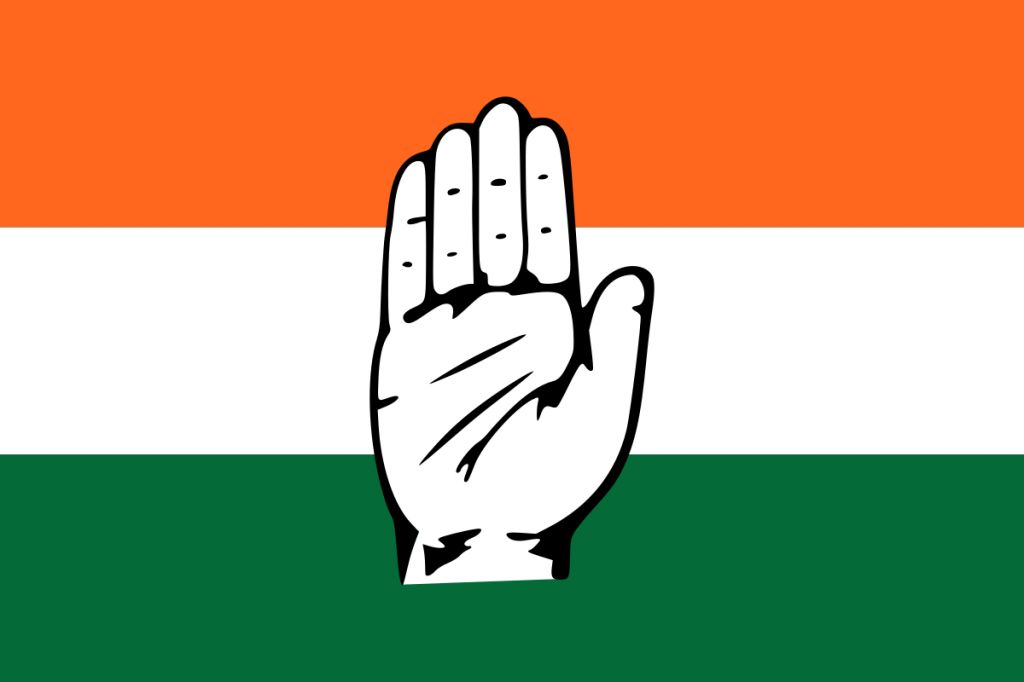
The idiom, "snatching defeat from the jaws of victory," is often used in sporting parlance when a favourite team ends up losing the match. India's principal opposition Congress party ended up doing precisely this in the northern state of Haryana, that too by scoring a self-goal.
Even ardent BJP supporters would not have bet on the party retaining power, let alone creating a new record by becoming the first to score a hat-trick of victories. The BJP top leadership themselves were apprehensive, having asked Chief Minister Manohar Lal Khattar to quit in March amidst reports of his growing unpopularity and the heavy baggage of anti-incumbency that he was supposed to carry.
The BJP's hunch that its stock was declining in Haryana proved correct in the 2024 Lok Sabha elections. The party, which had made a clean sweep by winning all 10 LS seats five years ago, had to share honours with Congress as the two arch-rivals won five seats each.
However, the drastic change in just four months took everyone by surprise. The BJP has recorded its biggest-ever victory in Haryana even as the vanquished Congress party is refusing to accept defeat, alleging foul play. This is against the backdrop of the October 5 exit polls which had tipped Congress to return to power.
The Congress began the day by faulting the autonomous Election Commission of India for not updating trends as vote counting commenced. By day's end, they resorted to the expected claim – the results were rigged.
The grouse stemmed from the fact that the party had lost 10 seats by margins less than 5,000 votes, the closest being the defeat of Brijendra Singh, a former BJP Lok Sabha MP who had quit the party along with his father Chaudhary Birender Singh, by just 32 votes from Uchana Kalan constituency.
Displaying it’s never-say-die attitude, the Congress officially stated it would petition the Election Commission against the results. The party might also end up challenging the Haryana results in courts, seemingly to divert attention from its own failures.
What Congress conveniently overlooked was that it had won seven seats by margins of less than 5,000 votes through the same process. Moreover, it defies logic why BJP would arm-twist the Election Commission for victory in Haryana – a relatively small state whose politics barely impinges on its neighbours Punjab, Rajasthan and Delhi, but surely not faraway Maharashtra and Jharkhand, due for polls next month.
If BJP were inclined to manufacture outcomes, Jammu and Kashmir would have been a more logical choice, as a victory would have given the party bragging rights nationally and internationally. Notably, the Congress won just six seats in J&K, where it is prepared to piggyback on the regional National Conference to form the government.
An analysis of the Haryana setback reveals that Congress remains trapped in a feudal mindset, undone by two crucial factors – overconfidence and overreliance. Opinion polls and internal surveys bred complacency, compounded by the Lok Sabha results. The party's central leadership made the questionable decision to outsource the Haryana elections to Bhupinder Singh Hooda and family – the point where the script went awry.
The party had fared well in the Lok Sabha polls when there was a convergence of interest in making Rahul Gandhi prime minister. This unity dissipated once it became apparent that either Hooda or his parliamentarian son Deepender Singh Hooda would become chief minister if Congress won.
The senior Hooda's blind spot for his son has damaged the party more than Sonia Gandhi's preference for Rahul. While Rahul Gandhi, a scion of the Nehru-Gandhi family, is accepted as supreme leader by Congress and its cadre, Deepender Singh Hooda enjoys no such privilege.
The elder Hooda, Haryana's last Congress chief minister, has systematically marginalised other influential leaders who might threaten his son's rise. The party was already in his pocket after he ensured Kumari Selja's removal as Haryana Congress chief in 2022, replacing her with his staunch supporter Udai Bhan. Some chief ministerial aspirants like Kuldip Bishnoi and Kiran Chaudhary had already quit and joined the BJP.
The state unit further alienated other potential chief ministers, Kumari Selja and Randeep Singh Surjewala. Their recommendations were ignored as the central leadership virtually rubber-stamped the candidate list prepared by Hooda and Bhan. This resulted in Selja abstaining from campaigning and Surjewala limiting himself to his son Aditya's campaign in Kaithal, who won his father's traditional seat by an unimpressive margin of just over 8,000 votes. Notably, Udai Bhan was among the leaders crying foul after losing the Hodal seat by about 2,500 votes.
Under Hooda's influence, the party rejected alliances with the Aam Aadmi Party and two Jat-dominated parties. While AAP and JJP won no seats and INLD won two, together they split the anti-BJP votes. The Jat votes fragmented as INLD and JJP secured 4.4 per cent and 0.9 per cent votes respectively, while AAP garnered 1.79 per cent of predominantly non-Jat votes.
The prospect of Hooda as chief minister further alienated voters who had backed Congress in the recent parliamentary polls. They were reminded of his regime, his ongoing real estate cases allegedly benefiting Robert Vadra (Priyanka Gandhi's husband), and accusations of favouring only the Jat community and Jatland region – factors that had led to his 2014 downfall.
BJP's strategic move to replace Khattar with Nayab Singh Saini paid rich political dividends. Since Khattar wasn't insulted but made a cabinet minister in the Modi government, the crucial Punjabi votes remained with the BJP. This base was further consolidated by OBC votes, especially from the Saini community – sufficient to overturn the Congress script between June and October and fashion BJP's unexpected victory.